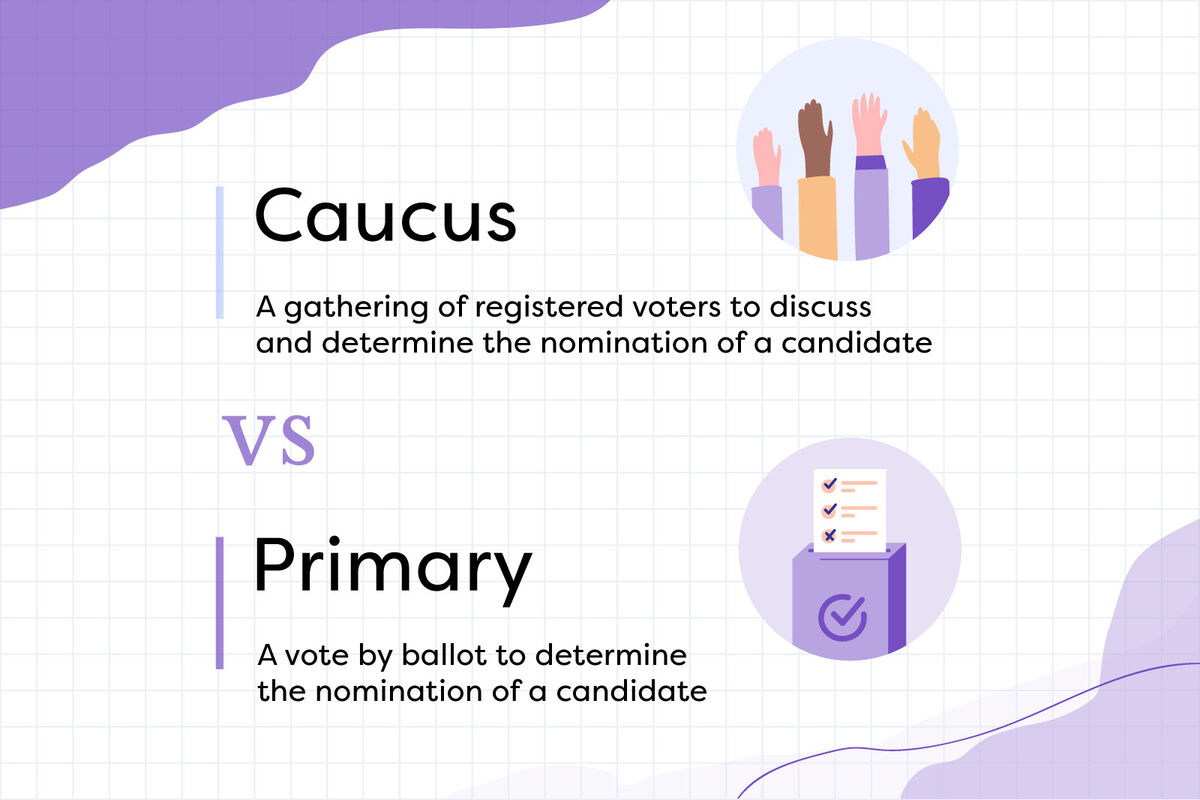Caucuses play a crucial role in the political landscape of the United States, particularly within the context of the electoral process. They are gatherings of party members who come together to discuss and decide on candidates for various political offices. This article aims to delve into the intricacies of caucuses, exploring their history, significance, and functioning within the political system. Understanding caucuses is essential for anyone interested in the democratic process and how political decisions are made.
In recent years, the caucus system has garnered much attention, especially during presidential election cycles. Many voters are keen to learn how their participation in caucuses can influence the selection of candidates. As we explore this topic, we will also examine the differences between caucuses and primaries, and the advantages and disadvantages of each system.
Through this comprehensive guide, readers will gain a better understanding of what caucuses are, how they operate, and their impact on the political landscape. We'll also provide insights into the various types of caucuses, key terms, and important statistics that illustrate their significance in the electoral process.
Table of Contents
- What is a Caucus?
- History of Caucuses
- Types of Caucuses
- The Caucus Process
- Caucuses vs. Primaries
- Pros and Cons of Caucuses
- Statistics and Impact
- Conclusion
What is a Caucus?
A caucus is a meeting of members of a political party or faction to discuss and decide on policies, candidates, and other matters. Unlike a primary election, where voters cast secret ballots, caucuses often involve public discussions and voting. Participants typically gather in local venues, such as schools or community centers, to express their preferences and engage in debate.
Key Characteristics of Caucuses
- Public discussions and debates.
- Open voting process.
- Emphasis on grassroots involvement.
- Often held in smaller, localized settings.
History of Caucuses
The concept of a caucus dates back to the early years of American democracy. The term itself is believed to have originated from the Algonquin word "caucauasu," meaning "to counsel" or "to meet." In the early 19th century, political parties began to formalize caucus meetings as a way to select candidates and shape party policies.
Over the years, the caucus system has evolved, adapting to the changing political landscape. Some states have continued to use caucuses as a means of selecting delegates for national party conventions, while others have transitioned to primary elections.
Types of Caucuses
There are several types of caucuses, each with its own unique rules and procedures. Understanding these types is essential for grasping how the caucus system functions.
1. State Caucuses
State caucuses are gatherings held by political parties within a particular state to select delegates for national conventions. They are often used in the early stages of presidential elections.
2. Congressional Caucuses
These are informal groups of members of Congress who share specific interests or goals. Congressional caucuses can address a wide range of issues, from healthcare to education.
3. Local Caucuses
Local caucuses are meetings held at the precinct or district level, allowing party members to gather and discuss local issues and candidates.
The Caucus Process
The caucus process can vary widely depending on the state and party rules. However, there are some common elements that most caucuses share.
Step-by-Step Process
- Preparation: Participants receive information about the candidates and issues to be discussed.
- Gathering: Members convene at a designated location and check in.
- Discussion: Attendees engage in discussions about the candidates and policies.
- Voting: Participants cast their votes, usually through a show of hands or by physically moving to designated areas.
- Counting: Votes are tallied, and results are announced.
Caucuses vs. Primaries
Caucuses and primaries are both methods used to select candidates for political offices, but they differ significantly in their processes and implications.
Key Differences
- Voting Method: Primaries use secret ballots, while caucuses involve public voting.
- Participation: Caucuses often require more time and commitment, as they involve discussions and debates.
- Accessibility: Primaries tend to be more accessible for voters, as they can cast their votes at any time during voting hours.
Pros and Cons of Caucuses
Like any electoral process, caucuses come with both advantages and disadvantages. Understanding these can help voters make informed decisions about their participation.
Advantages
- Encourages grassroots involvement and discussion.
- Fosters community engagement and political awareness.
- Allows for in-depth discussion of candidates and issues.
Disadvantages
- Can be time-consuming and complex.
- May limit participation due to scheduling conflicts.
- Public voting can discourage some voters from expressing their true preferences.
Statistics and Impact
Understanding the impact of caucuses on the electoral process is essential. According to the National Conference of State Legislatures (NCSL), approximately 13 states use caucuses for presidential elections. Caucuses can significantly influence delegate allocation and candidate momentum.
Statistics indicate that states with caucuses often see lower voter turnout compared to those with primary elections. For example, the 2020 Iowa caucus had a turnout of about 14%, whereas primaries in other states averaged around 20-25%.
Conclusion
In summary, caucuses are a unique and integral part of the American political system. They provide a platform for party members to engage in discussions and make collective decisions about candidates and policies. While caucuses have their advantages, they also present challenges that can affect voter participation.
If you found this article informative, consider sharing your thoughts in the comments below or sharing this article with others interested in the electoral process. Additionally, feel free to explore other articles on our site for more insights into the world of politics.
Closing Thoughts
Thank you for reading about caucuses and their importance in the American political landscape. We hope you found this information useful and that you feel more empowered to participate in the democratic process. We invite you to return for more articles and discussions on political topics that matter to you.




